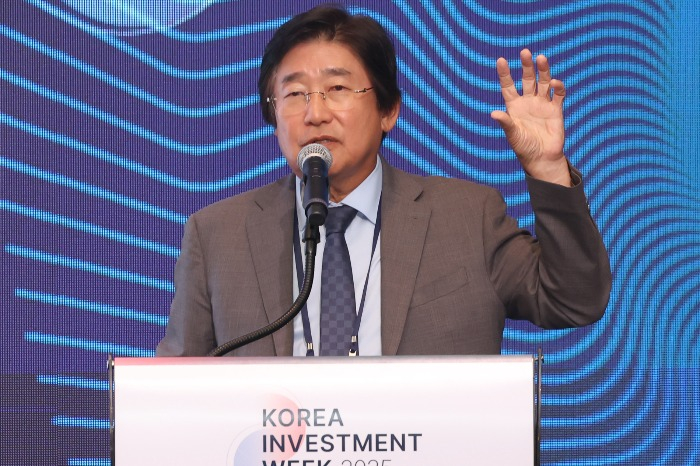
ABL Bio Inc., a South Korean biotechnology company, has signed a $2.6 billion licensing and joint research agreement with Eli Lilly and Co. for its proprietary blood–brain barrier shuttle platform known as Grabody-B, marking one of the country’s largest technology transfer deals this year.
Under the agreement, ABL Bio will receive an upfront payment of $40 million from Eli Lilly within 10 business days after the completion of US regulatory procedures.
The Korean company will also be eligible to receive up to $2.56 billion in research, development, regulatory and commercialization milestone payments, as well as tiered royalties on net sales if Eli Lilly successfully develops and markets treatments using the platform.
The deal will allow the two companies to jointly develop multiple therapeutics leveraging various drug delivery modalities based on the Grabody-B platform, ABL Bio said.
The new partnership with Eli Lilly comes just months after ABL Bio signed a $2.8 billion licensing deal with GSK plc in April, the largest-ever out-licensing agreement by a South Korean biotech for neurodegenerative disease treatments.
Shares of ABL Bio surged by the daily limit of 30%, closing at 126,700 won on Wednesday following the announcement.
EXPANDING THE REACH OF GRABODY-B

ABL Bio’s Grabody-B technology is designed to enable antibodies and other biologics to efficiently cross the blood–brain barrier, a key challenge in treating neurological disorders.
The platform has shown strong potential for addressing diseases such as Alzheimer’s and Parkinson’s, where drug delivery to the brain remains a critical hurdle.
Eli Lilly is expected to expand the use of Grabody-B to new areas such as obesity and muscle disorders, broadening its application beyond central nervous system diseases.
“This licensing deal not only reaffirms the commercial potential of the Grabody platform but also highlights the continued expansion of its applicability across therapeutic modalities,” said Lee Sang-hoon, chief executive of ABL Bio.
“We plan to build on this momentum by extending Grabody’s use to areas with significant unmet medical needs, such as obesity and muscular diseases.”
STRENGTHENING ABL BIO’S GLOBAL PIPELINE
ABL Bio has developed a range of bispecific antibody platforms, including Grabody, to advance a diversified portfolio of clinical and preclinical assets.

The company currently has eight clinical programs, including ABL301 (SAR446159), ABL001 (Tobesimig), ABL111 (Zivastomig) and ABL503 (Lazistomig), under development across the US, China, Australia and South Korea.
Among them, ABL301, co-developed with Sanofi SA, is being transitioned to Sanofi as the trial sponsor for subsequent clinical stages, while ABL001 has received Fast Track designation from the US Food and Drug Administration.
ABL Bio said it is also continuing preclinical work on several bispecific antibody–drug conjugate (ADC) programs.
A YEAR OF RECORD DEALS FOR KOREAN BIOTECH
The ABL Bio–Eli Lilly deal also caps a record year for South Korea’s pharmaceutical and biotech sector.
According to the Korea Pharmaceutical and Bio-Pharma Manufacturers Association, domestic biotech firms have signed license-out deals worth a combined 18.1 trillion won ($12.3 billion) so far in 2025, surpassing the previous all-time high of 13.8 trillion won set in 2021.

Analysts attribute the boom to the growing prominence of Korean firms’ platform-based technologies, which allow drug developers to apply a single core technology across multiple therapeutic targets and indications.
Alongside ABL Bio’s Grabody-B, Alteogen Inc. signed a deal for its subcutaneous injection platform, while Rznomics Inc. licensed its RNA-based gene therapy platform to Eli Lilly.
Eli Lilly’s recent K-bio shopping spree has also further fueled momentum.
The US drugmaker, which had limited engagement with Korean biotech since a 2015 immunotherapy deal with Hanmi Pharmaceutical Co., has signed three technology transfer agreements this year alone, including a 911.7 billion won deal with OliX Pharmaceuticals Inc. in February, the 1.9 trillion won deal with Rznomics in May and now the ABL Bio contract.
“The success of ABL Bio and other Korean biotechs, both listed and private, in exporting platform technologies to major global players shows how rapidly the country’s biotech sector is expanding its global footprint,” said Lee Myung-sun, an analyst at DB Financial Investment Co.















